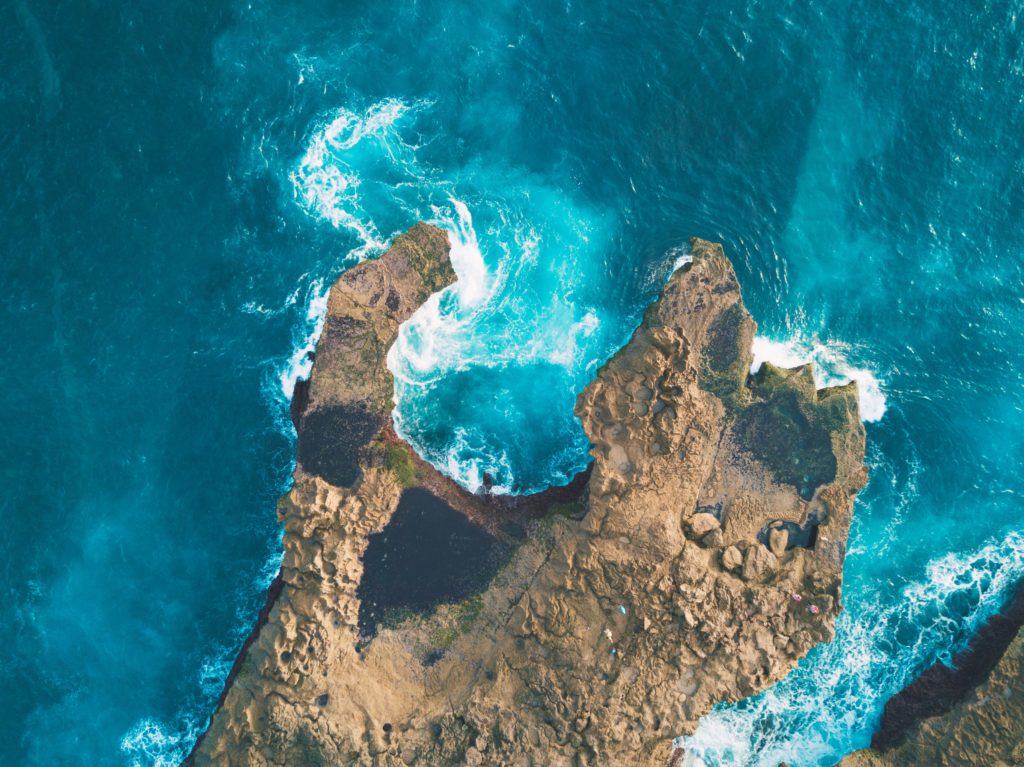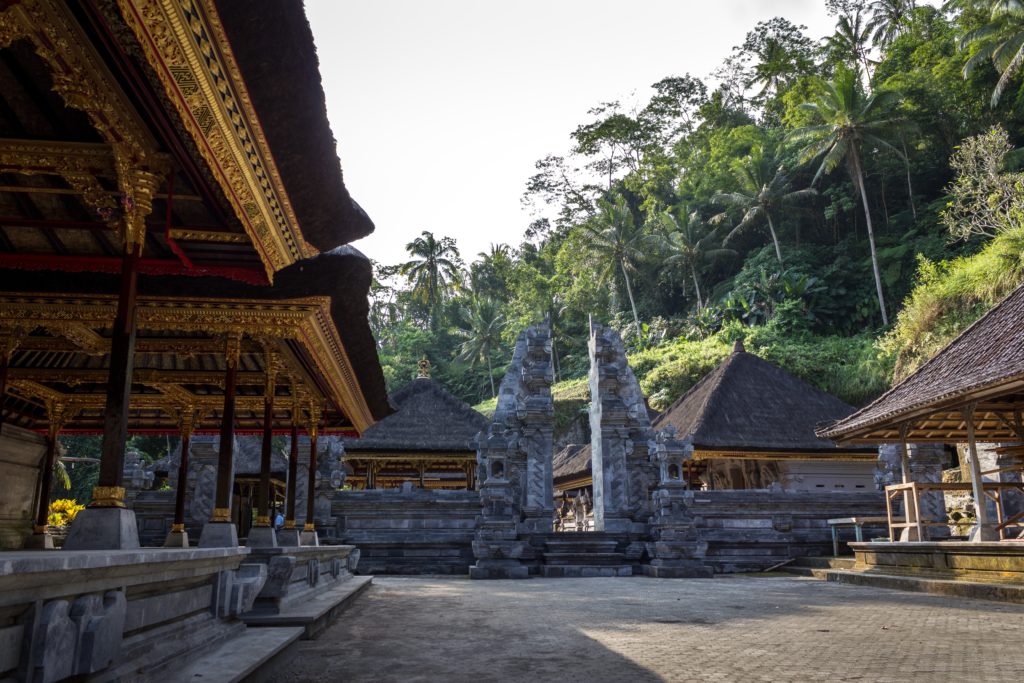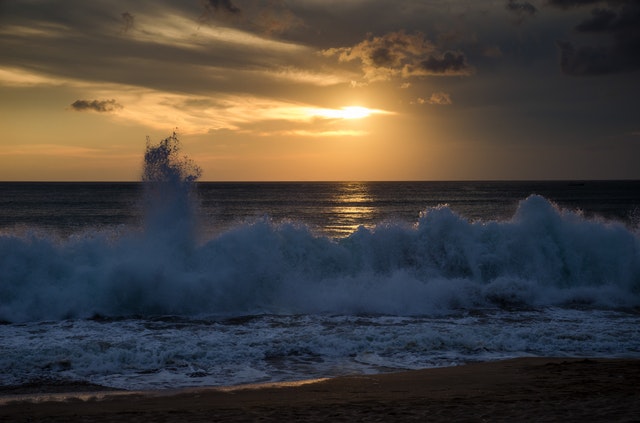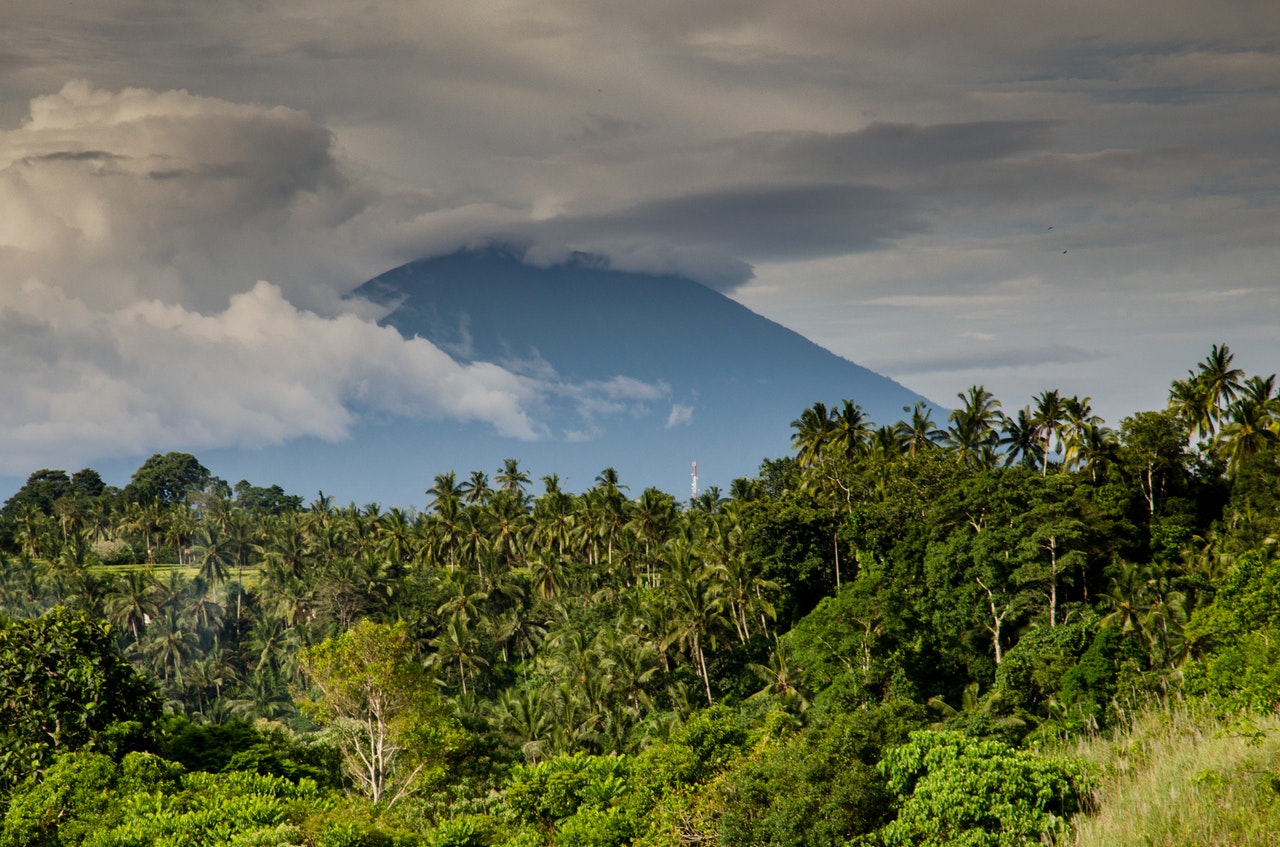Background – In April 2016, I Co-Authored a legal analysis with an Indonesian Attorney & Author, Davidson Samosir, Esq. on a new legislative enactment. It was novel and controversial. Our purpose at that time was to bring some clarity for the Legal community for this was a dramatic new law for the country of Indonesia regarding Foreign ownership of real estate. So, at that time it was a Legal Thesis for our legal brethren.
Foreign investors and ex-pats had been waiting on such a law as this for decades but for that time period at least Dr. Samosir, Esq. & myself toiled over what was to be the first analysis of its kind in the Indonesian legal annals realizing all the while that the law was new and was yet to stand the test of time.
So, after much deliberation we wrote the first Article on this in the Indonesian Legal Digest. But, as we were also both Authors as well as Attorneys we wanted to wait and give it some time to see how it was all going to turn out before we ever submitted this to the mainstream alternative media outside of the sterile world of ‘Legal Academia’.
That was then and this is now. So, without further elaboration let us ask you, do you want to own your own Home in Bali?

It does indeed seem to be that GR 103 which allows foreign real estate ownership in Indonesia by foreign nationals (can you say Bali?) is working and getting some attention so we thought we would give these changes an update (note our Prediction on Cuba in 2016 – We were Correct).
Update on Original publication featured in The Indonesian Legal Digest, Thursday, April 21, 2016.
GR-103, 2015 – Foreign Ownership of Indonesian Real Estate Land: It’s Purpose, Changes and Potential for Success & A Comparative Analysis
By David Hutton [1] & Davidson Samosir [2] © 2016-2017
It is an alienable right of the People, at least those that are free and this is as old as time itself. You could even go so far as to say that it is very closely tied to all of the other freedoms that a Country’s citizens enjoy. You take their Land – You have taken a part or all of their Freedom because the two are inseparable and freedom to own land is also is aligned to other inseparable rights such as speech, religion association and the obvious others that we all know in determining whether we are free or not.
There has been a recent deluge and new phenomena of global investors who are seeking more advantageous tax treatment by legally avoiding taxes in their native homeland through real and legitimate investments abroad that will add an overall value of appreciation to their financial portfolio.
With many countries “opening their Doors” to global investors has become the “New Gold”, for both individual and corporate entities. Although many investors have found tremendous success in their path, some have “Backfired”.
Now for Americans this is fairly straightforward – Real Estate assets under FBAR and Regulation 8938 were and are not reportable assets nor is the income (*under FATCA the income is reportable) thereto and that fits neatly within the square box of legal tax avoidance for some jurisdictions but there was a catch – You had to own the real estate before you could realize the full value of these tax leniencies. Until recently, such was not to be the case deep in the South Pacific and especially on one of the world’s most exotic and enchanting islands and cultures – Bali.
So, let’s talk about Indonesia, Land of Bali, Land of Paradise.
Indonesia

Indonesia is an archipelago country that has more than 17,000 islands expanding as wide as the United States east to west coasts and as this article explains has just recently opened their doors to the global investor.
Indonesia as a replublic has often been mistaken by many foreigners as part of Bali but instead and according to the Balinese it’s actually the other way around – The Indonesian government has recently changed their view on foreigners’ rights to own property.
The responsible legislation for this was Government Regulation No. 103 of 2015 specifically deals with and Governs the Ownership of Residential Property by Foreign Citizens Domiciled in Indonesia (“GR 103/2015”).
This new legislation, in essence, legalizes for different classifications and longer property ownership by foreigners for the purpose of attracting foreign “economic investment”, specifically for those individuals who want to stay and reside in Indonesia on a more permanent basis.
It also extends to the type of land titles that foreigners may own. For example, foreigners may now enjoy property ownership of up to 80 years, instead of the previous regulatory framework that only allowed ownership rights of up to 50 years pursuant to Government Regulation No. 41 of 1996 on Ownership of Residential Property by Foreign Citizens Domiciled in Indonesia (“GR 41/1996”).
Also worth noting is that, of the variety of different types of Indonesian land titles such as freehold (Hak Milik), right-to-farm (HGU) right-to-build (HGB), right-to-use (Hak Pakai), and leasehold (Sewa) are not all available and designated to foreigners.
Foreigners may only own property in which the underlying land rights are a right-to-use and leasehold. Interested? What’s even more interesting about the new GR 103/2015 is that foreigners may now own a land that is sitting on a freehold title, by attaching a right-to-use title on top of an existing freehold estate. What does this mean you may ask?
The ‘Leonardo’ Interpretation
Although the concept of having several different layers of land rights for one single land plot seems like an enigmatic concept for those coming from a common-law jurisdiction or Western countries. This concept may be better understood via the recent Hollywood Phenomena hit movie by Christopher Nolan, “Inception” starring Leonardo Dicaprio, where it is possible to have multiple dreams within a single dream.
 In the movie, it was introduced the concept that a person may be experiencing a dream within a dream, and yet within another dream within that dream (whew) was introduced and it was a ‘brain twister’ for sure. I remember getting confused in all three dreams at the same time because they were all collapsing and any one of them could have killed the individuals in rea life! (Help, Wake me up Three Times because I am having three dreams!)
In the movie, it was introduced the concept that a person may be experiencing a dream within a dream, and yet within another dream within that dream (whew) was introduced and it was a ‘brain twister’ for sure. I remember getting confused in all three dreams at the same time because they were all collapsing and any one of them could have killed the individuals in rea life! (Help, Wake me up Three Times because I am having three dreams!)
Back to the ‘stacking’ of Freehold Estates – Does this sound weird? Well maybe so, but this concept isn’t anything new to Indonesia and it works but to foreigners it takes some study to fully understand it completely but suffice it to say that at the end of the day that this right of ownership is both Real, Transferable and inherently valuable. [3] So the paramount question becomes – Do you really, actually Own it? Short Answer – Yes, you do.
Moreover, what should be taken into account when considering whether or not to buy real estate property in Indonesia is that the government has set certain restrictions on property value that a foreigner may own determined by the Minister of Agrarian Affairs and Spatial Layout / Head of National Land Agency Regulation (No. 13 of 2016) on Procedures for Granting, Relinquishing and Transferring Ownership of Residential Property for Foreign Citizens Domiciled in Indonesia.
This regulation sets different minimum thresholds based on the property type and depending on the location [4] and so this is a change from the original law on the minimum threshold amounts for investment and purchase.
(*they have all increased significantly) So, what does this indicate to you? See the chart below and the new changes since the passage of the original law, 2015 and effective, 2016.
| Location | Type of Property – Rupiah | |
| House | Apartment | |
| Jakarta | 10 billion | 3 billion |
| Banten | 5 billion | 2 billion |
| West Java | 5 billion | 1 billion |
| Central Java | 3 billion | 1 billion |
| Jogjakarta | 5 billion | 1 billion |
| East Java | 5 billion | 1.5 billion |
| Bali | 5 billion | 2 billion |
| West Nusa Tenggara | 3 billion | 1 billion |
| North Sumatera | 3 billion | 1 billion |
| East Kalimantan | 2 billion | 1 billion |
| South Sulawesi | 2 billion | 1 billion |
| Other location | 1 billion | 750 million |
* We left out the Province of Komodo as we did not think anyone would want to own real estate and share it with the Komodo Dragons (however, we could be wrong).
Rate of Exchange – Rupiah – USD
Do note that at the time this article is written, the exchange rate of 1 US dollar is equivalent to 13,000 Rupiah, which means that foreigners thinking to buy a House in Bali must spend at minimum $384,000 USD and this too has gone up from the original $230,000 from only one year ago (Can you see the trend here?).
Entirely New Amendment with A ‘Caveat’
Entirely new also since 2016 is a restriction that entails the application of this regulation for each individual or family there are constraints from owning a land area greater than 2000 m², however, there are certain economic considerations that allows a waiver to be granted by the government, which is a discussion topic for another time but what you need to know is that it is available.

Property and its Heritage – A Soulful Treasure of a Culture
But today is a different World, a “Global Village” and foreigners see opportunities of both personal and business that are attractive in other Countries. What is a Country to do? Should they let them in or exclude them and their “Opportunities”? This is a delicate balancing act of Prosperity vs. Loss of control but whose Opportunity and whose control?
That was the dilemma and task that the Indonesian government tried to reconcile in “GR 103 / 2015. Is It Good for the Indonesian People and if so, how should it be Governed? Isn’t that what we are really talking about here –”Control”? To whose benefit, the Government or the people? Let’s contrast other Countries where it has been both too restrictive and not restrictive enough.
Mexico Today with Foreign Ownership of Real Estate
Today, Mexico has what is referred to as “restricted zones” in which foreigners have the same right to purchase property as citizens, however these restricted zones consist of areas within *50 kilometers of the coast and 100 kilometers of an international border and the former Fideicomiso is still is in existence in order for a foreigner to purchase real estate as we have discussed. This has obviously today resulted in a dramatic change and one only has to look to the Province of Baja, the explosion of now one of the World’s most visited Tourist attractions, Cabo San Lucas to see just what economic benefit this has caused with an avalanche of Tourists and it resembles nothing of the quaint little famous fishing Village back in 1982.
Mexico’s Foreign Ownership Laws Are Less Restrictive – But these changes that were made with the 99 year fideicomiso or “trust” ownership before the new Law changes went into effect had no Provisions of “mandatory Retainage of Local economic financial benefit (today this has changed) with this new change in the law the question arises if the Local people are realistically getting the benefit of this new Foreign Real Estate Change and there is a differing of opinions about whether they are or not but what seems certain is that the Indonesian Government with the issuance of GR 103 / 2015 were mindful of these very issues and were not going to make the same mistake and thus sought to preserve the Indonesian Citizenry’s welfare for future generations.
The Hot Property Today For Foreign Purchasers of Real Estate – Is obviously Costa Rica and this small Central American country has beautiful beaches on both the Caribbean and Pacific coasts. Historically its “Geopolitical” climate & history has been “smooth sailing” and stable unlike most of its Latin American neighbors.
But, that said ownership of property near the coast is regulated, and there are other restrictions under some maritime zone laws that apply as well. But outside of restricted zones, foreign buyers shouldn’t encounter ownership hurdles. In this country, there has been an obvious preference of Foreign Real Estate owners to own the Prime locations of coastlines and although there are some restrictions (and even prohibitions) the legal community has put on its “Thinking Cap” and already devised ways to circumvent these restrictions.
To date this have been successful and without incident but the end of this story has yet to be written because there is much more coastline real estate to purchase and one can easily imagine a Foreigner owning prime Coastline Property for $ xxx and selling it to a Worldwide Hotel Corporations for many times over what it was purchased. So, as we have asked of other comparisons; “has this worked?” For now, it appears that it has as the economic reports indicate. *And by the way virtually all of Latin America, real estate transactions are conducted in US dollars. [5]
Ecuador – The level of real estate prices (and the cost of living in general) in Ecuador is among the lowest in the world, which makes the country popular with retirees on a budget. There are no restrictions on foreigners owning property. Again, it is helpful to inquire of whether Ecuador’s Foreign Real Ownership Laws are working to enhance the Economic viability of the Country and again also the economic figures seem to indicate that they have served the economic interest of the country. Ecuador is among the lowest cost of living locations in the Caribbean which makes the country popular with retirees on a budget and in recent years this has been a refuge for US retired Ex – Pats who are living on Social Security income only.
Chile – A Change in Foreign Ownership Laws with a Unique and “Novel” Twist
Chile – Without a doubt one of the most less restrictive and freedom of foreign ownership and restrictions is Chile and if you haven’t looked at their National statistics of Foreign ownership, new businesses, use of land, currency valuation, unaffected by the recent decade of Global Geopolitical & economic crisis you should. It is Booming and Flooding with US dollars with purchasing and starting of businesses, purchases of Wineries, walnut groves and new Housing and apartments by Foreign ownership So in this country at least it is safe to state that it is Booming!
Chile Today 2016 – Is nothing short of a Marvel in today’s times and what Chile is doing is most certainly working and other Central American countries are following close behind Chile’s model in the neighboring countries of Nicaragua, Panama and especially Ecuador. All of their respective Laws of Foreign Real Estate ownership are virtually “non-existent” (or Less restrictive than GR 103 / 2015) and with these less restrictions Foreigners may obtain both Residency Permits and even “Passports” and this has certainly added to the Foreign Economic interest/ investment equation and it not required that they remain “Domiciled” as does Indonesia’s GR 103 / 2015.
Chile coastline extends for 3,100 miles along the west coast of South America. The country is relatively modern, and politically stable than any of its South American neighbors and has the highest income per capita in Latin America. Chile also has attractive foreign real estate ownership laws.
Chile’s Added Assurances for Foreign Real Estate Owners – This concept is new to the proliferation of the world’s countries who are now revisiting, modifying and changing laws for foreign ownership of real estate but Chile has taken this concept one step further with enormous results – *They Include protection for the Foreign Ownership of real estate by non-nationals into their own Governing Constitution which is a strong Legal provision of protection.
The Chilean Constitution – The Chilean Constitution “Specifically Decrees” that foreign real estate owners possess the same private property protections as Chileans and there is no residency or in-country presence is required to purchase property. Chile’s business-friendly environment has inspired economic growth with a two year “Corporate Tax Exemption”, and investing in Chilean real estate is a way to tap into this trend. At this writing, this seems to have produced an enormous economic benefit with no “side effects” but it naturally begs the same question as the other Countries that have been examined in this article and that is – Will it last?
Soon to Be an Enormous Player in The Foreign Real Estate Ownership Game – Cuba
*At first glance, one might assume that Cuba is going to Open up to Foreigners with an “Open Door Policy” but not so fast here!
Cuba – 1935 – 1960 Such was the vibrant atmosphere and prosperity in Cuba a few decades before Organized Crime took over the entire country until Fidel Castro finally overcame them and people may differ whether one was any better than the other but that’s a discussion for the Politicians. The essence here is for the Cuban Government to “Proceed with caution” in all matters and especially with regard to allowing Foreign ownership of Real Estate Property. Is there a lesson to be learned here?
It would appear that there is lessons to be learned and that is that people will always be the most valuable Natural Resource of any country as GR 103 / 2015 loudly proclaims and that any law that passes with regards to Foreign entities (especially New Conglomerate Corporations waving a “Fist Full Of Dollar © ” should be viewed with some suspicion and circumspection. [6]
Foreign Real Estate Directly Affects Currency Stability – In addition it should always be monitored as to how much money will Foreign interests retain in the local currency and in Local Banks and help stabilize the host country’s currency. This could be a critical factor in times like the one the United States is facing today with its “currency wars” with China and Russia.
The US has had virtually no restriction of foreign ownership which has caused major economic problems. It also has a $19 Trillion debt, no way to pay it and US major Corporations are “voting with their dollars” and exchanging it for more solid currency such as the Swiss Franc, Norwegian Krone and even the Chilean Peso’!
And Speaking of Cuba and Especially of the newly established Diplomatic Sanctions, Restoration of Embassies and trade talks it all sounds terrific as long as they can address beforehand (Now!) the same “specter” of sinister banditos terorganisir that were in Havana in the 1940s and 1950s and who are still around with the same intentions only different faces so the danger is still ever present in Cuba.
I wish them well. Let us see how much they have learned about their own corrupt organizations, be they Organized Crime or Any Government (Especially their new friendly neighbor -The United States) of depriving the People of their rights, freedoms and culture. They are a great people already rich in culture and deserve a chance to make their mark on humanity as Indonesia is and is trying further to do!
Did GR103 Go Far Enough?
We think so. Given the fact that the purpose of the passage of “GR 103 2015” was to inspire and ignite a positive Economic Impact it does also indeed get a ‘Green light’ in this category and the revisions to the Original 2015 legislation seems to have settled ‘softly’ on political grounds and the Indonesian Government does seem to be satisfied so I would not expect to see this change anytime soon.
So, Did the Indonesian Government Get It Right?
After a year’s observance of a two-year-old law which only took effect in 2016 it is certainly appearing to be a step in the right direction, at least for the present time. And is does seem that upon taking an unflinching gaze into the past year from the Holistic Vantage of Time and perusing over the Political deeds or misdeeds of the Republic that they have acted and judged this law fairly and equitably – In the Now and it all seems good.
And so, we leave you Foreign investors out there who have a bountiful flair for adventure and who are in love with the Balinese culture and lifestyle to ponder our opinion on this two-year-old law with this statement; Jadi selamat kepada pemerintah pada pekerjaan dilakukan dengan baik!
(Congratulations to the Republic of Indonesia on a job well done!)
For you Expats and desirous Foreign home owners who long for the Exotic Tropical Paradises – Pack Your Bags!
[1] David Hutton is an International Attorney, Author & Freelance writer for Hukumonline English as well as The Bangkok Post, Thailand. His website is PrecociousLife.com. David Hutton must candidly confess extreme bias towards Indonesia as he has lived there. David and his wife Kristin are presently living in Züg, Switzerland.
[2] Davidson Samosir, Esq. is an Author, former Editor-in-Chief of Hukumonline English Newsroom, highly regarded Attorney (called Advocates) and Frequent Lecturer.
[3] For further information on GR 103/2015, see ILD No. 446.
[4] For further information on this regulation, see ILB No. 2863.
[5] * We should note also that since the original Article we published in 2016 Costa Rica has experienced a serious economic crisis and with these types of economic woes comes more restrictions and even in some cases a moratorium of rights, freedom of alienation of interests, etc (we think you get the point).
[6] A Fistful of Dollars is a 1964 ‘Spaghetti’ western film directed by Sergio Leone and starring Clint Eastwood in his first leading role.
Disclaimer – This article is expressly written for the purposes of recent news. It is not to be construed as either legal nor tax advice, counsel, or direction. The regulations here pertaining to Americans (FBAR, FATCA, REG. 8938) can be highly complex and are always undergoing United States federal taxation (IRS) revisions and analysis. Moreover, there has been a recent dramatic increase in American investors of real estate property in various foreign jurisdictions and while it is true that there are significant tax advantages we strongly urge you to seek appropriate expert advice and opinions from specialists in these fields. If you truly have an interest we can certainly direct you to these types of individuals. So, do not rely on this as extreme diligence upon which to act.
Originally Published Thursday, April 21, 2016 – http://en.hukumonline.com/pages/lt57186f8b354e8/foreign-ownership-of-indonesian-real-estate-land-it-s-purpose-changes-and-potential-for-success-a-comparative-analysis


